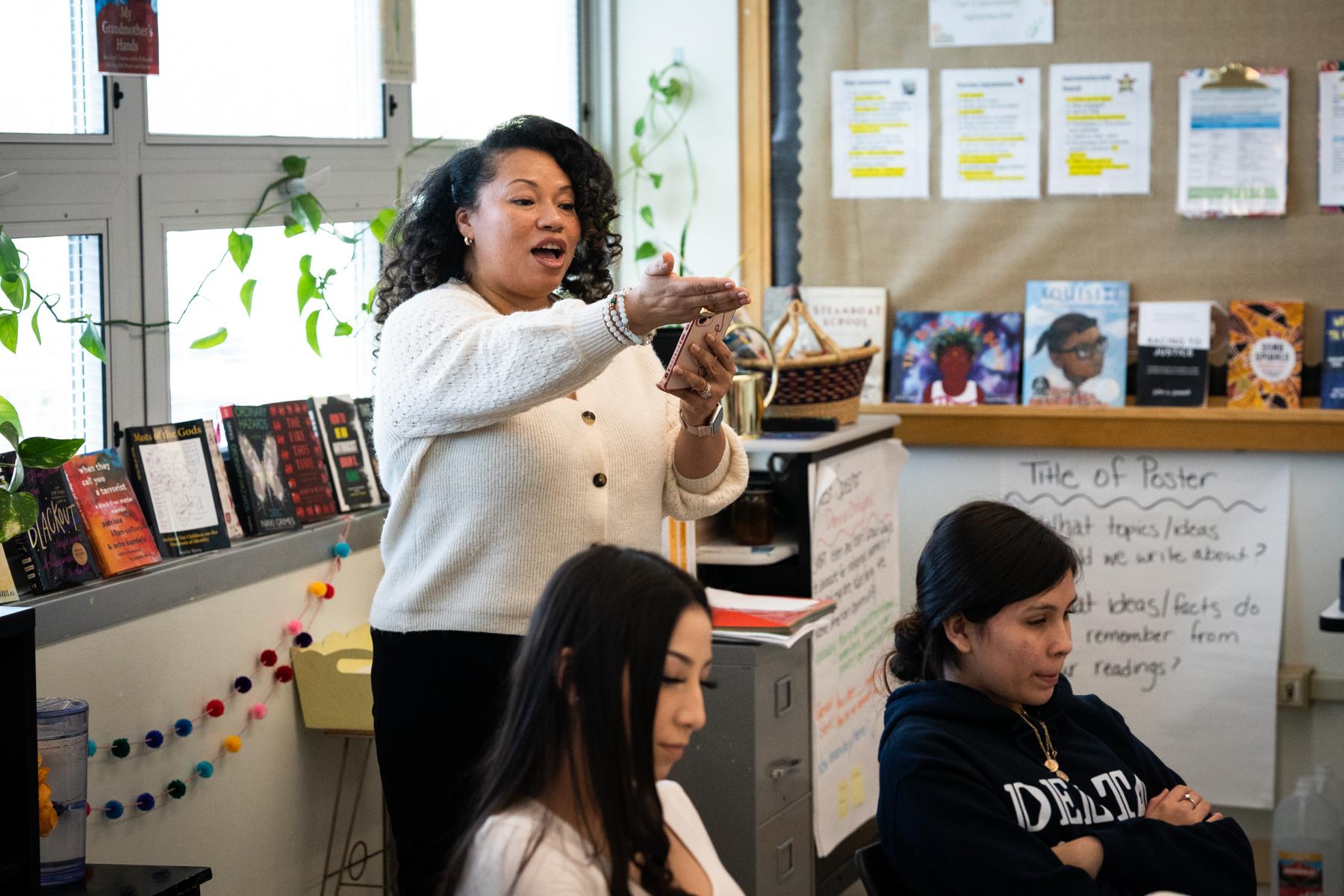
A new poll shows most Americans express compassion for public school teachers, believing they are undervalued (73 percent), underpaid (66 percent), and overworked (58 percent), and two-thirds of people polled support raising teachers’ salaries even if it means increasing property taxes.
The PDK International poll is an annual survey of American attitudes toward public schools. A research firm surveyed a random national sample of 1,002 adults in June.
The same number say teachers should have a substantial say in what’s taught in public schools, more than say so about school boards (56 percent), local residents (41 percent), or lawmakers (33 percent). Yet a slim majority supports state laws regarding what teachers can and cannot teach.
Support for four-day weeks makes big gains
The biggest change over time this year is the public’s views on alternative school schedules. Just over half said they would support a four-day school week with longer school days as a cost-saving measure. That is a significant increase from 2003, when only a quarter of respondents expressed support. It said the results do not differ substantially among Americans who have a child younger than 18 living at home and those who do not.
The survey didn’t specify what working families without childcare would do in place of a fifth day of schooling.
In Colorado, some teachers may like the idea of four days but families and administrators not so sure
Nearly three-quarters of Colorado’s 178 school districts have a four-day school week. Most of those are small rural districts but one metro district, 27J in the Brighton area, has adopted a four-day calendar. Facing budget constraints and a statewide teacher shortage, that district shortened the week in an effort to recruit and retain teachers.
In the Adams 12 Five Star district Superintendent Chris Gdowski said a survey this year showed teachers and students liked the idea but families less so.
“In the end, we know that for many of our families having only four days a week where we can care for their children causes a hardship depending on their employment situation,” said Gdowski. The district eliminated the option but has a new calendar, with school running about six weeks and then taking a week off.
“We feel like it’s better than the four-day week,” he said. “It allows us to have more complete five-day weeks where we get in a rhythm, and we feel like we’re going to work hard and then people can play hard.”
He also hopes it improves attendance, which has dropped significantly nationwide. Two years ago, more than 37 percent of his district’s students missed 18 or more days of school in the year.
The superintendent of the neighboring St. Vrain Valley School District, Don Haddad, strongly opposes a four-day week, citing economic and safety issues. Including holidays and days off, he said American children are already in school only about six months of the year.
“When you take another day, that means they're basically in school for five months a year, while other countries are in school nine, 10 months a year.”
He said when districts move to four days and increase the length of the day, fatigue, information retention and limited attention spans of children come into play. With alternating block schedules, some teens could go four days before revisiting a subject.
Haddad refutes the argument that kids need a break from the stress of school.
“We saw during the pandemic that kids stay at home exacerbated a lot of the issues that students were struggling with,” he said.
A national Chalkbeat story reported on mixed findings on academics in schools with four-day weeks, noting that one study showed improved test scores but another found it hurt achievement, especially among students of color, low-income students and students with a disability.
A separate study found in districts that adopted four-day school weeks, home prices declined two to four percent relative to surrounding school districts, and there was a 5 percent decrease in teacher retention for experienced teachers, and a decrease in test scores.
One Colorado study showed a spike in youth crime, mostly property crime and drug offenses.
Haddad said the idea of a four-day week sounds attractive to a lot of people.
“(But) we have to not turn public education into a popularity contest. We have to recognize that our economy is dependent on it.”
Keep doing mental health assessments
On another topic, results show widespread support for schools conducting mental health assessments of students. But there was a division as to whether these should be done only for students whose parents or guardians request it (45 percent) or for all students (39 percent). Just 14 percent prefer no mental health assessments at all.









